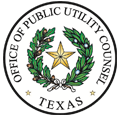The electric, telecommunications and water service industries in Texas are regulated and governed by a host of independent, state and federal agencies. Each regulatory body is charged with unique tasks and responsibilities to ensure adequate protection for and service to the public.
The Public Utility Commission (PUC) is the state agency that regulates electric, telephone and water utilities for the state of Texas. Its mission is to protect customers, foster competition and promote high quality infrastructure. In other words, the PUC writes and enforces the rules by which utilities abide.
The Electric Reliability Council of Texas (ERCOT) manages the flow of electric power to 22 million Texas customers. This represents 85 percent of the state's electric load and 75 percent of the Texas land area.
ERCOT is the independent system operator (ISO) for the region. An ISO schedules power on an electric grid and ensures the grid can handle the different types of power available at any given time. The ERCOT grid connects 40,000 miles of power lines and more than 550 generation units. Another important responsibility for ERCOT is maintaining the reliability of the power grid. This means ensuring that electric power is always available no matter how high or low the demand for that power may be. If an area is experiencing numerous power outages, the reliability of that section of the grid will need maintenance, and it is ERCOT’s job to notify and work with the proper electric utilities and electric generators in order to resolve the issue.
ERCOT also manages financial settlement for the competitive wholesale bulk-power market and administers consumer switching for 6.5 million Texans in competitive choice areas. When a consumer chooses a retail electric provider, ERCOT ensures the details of that purchase, such as pricing, are communicated to the appropriate companies in a timely manner.
___________________________________________________________________________
Headquartered in Austin, Texas Reliability Entity, Inc. (Texas RE) performs the regional entity functions described in the Energy Policy Act of 2005 for the ERCOT region, as mandated by the delegation agreement with the North American Electric Reliability Corporation (NERC).
The delegation agreement was approved by the Federal Energy Regulatory Commission.
Texas RE is authorized by NERC to develop, monitor, assess, and enforce compliance with NERC Reliability Standards within the geographic boundaries of the ERCOT region.
In addition, Texas RE is authorized by the Public Utility Commission of Texas (PUC) and is permitted by NERC to investigate compliance with the ERCOT Protocols and Operating Guides, working with PUC staff regarding any potential protocol violations.
Texas RE is independent of all users, owners, and operators of the bulk-power system.
The regional entity functions and protocol compliance were previously performed by Texas Regional Entity, a functionally independent division of ERCOT. Texas RE took over all responsibilities of the Texas Regional Entity on July 1, 2010.
___________________________________________________________________________
The Federal Energy Regulatory Commission (FERC) is an independent agency that regulates the interstate transmission of electricity, natural gas, and oil. FERC also reviews proposals to build liquefied natural gas terminals and interstate natural gas pipelines, as well as licensing hydropower projects. The Energy Policy Act of 2005 gave FERC additional responsibilities...more
___________________________________________________________________________
The North American Electic Reliability Corporation (NERC) is an independent, non-government organization which regulates bulk power system users, owners, and operators through the adoption and enforcement of standards for fair, ethical, and efficient practices. more
___________________________________________________________________________
The Federal Communications Commission (FCC) is an independent, government agency established by the Communications Act of 1934. The FCC regulates interstate and international communications by radio, television, wire, satellite, and cable. The FCC holds jurisdiction over the 50 states, the District of Columbia, and U.S. possessions.




